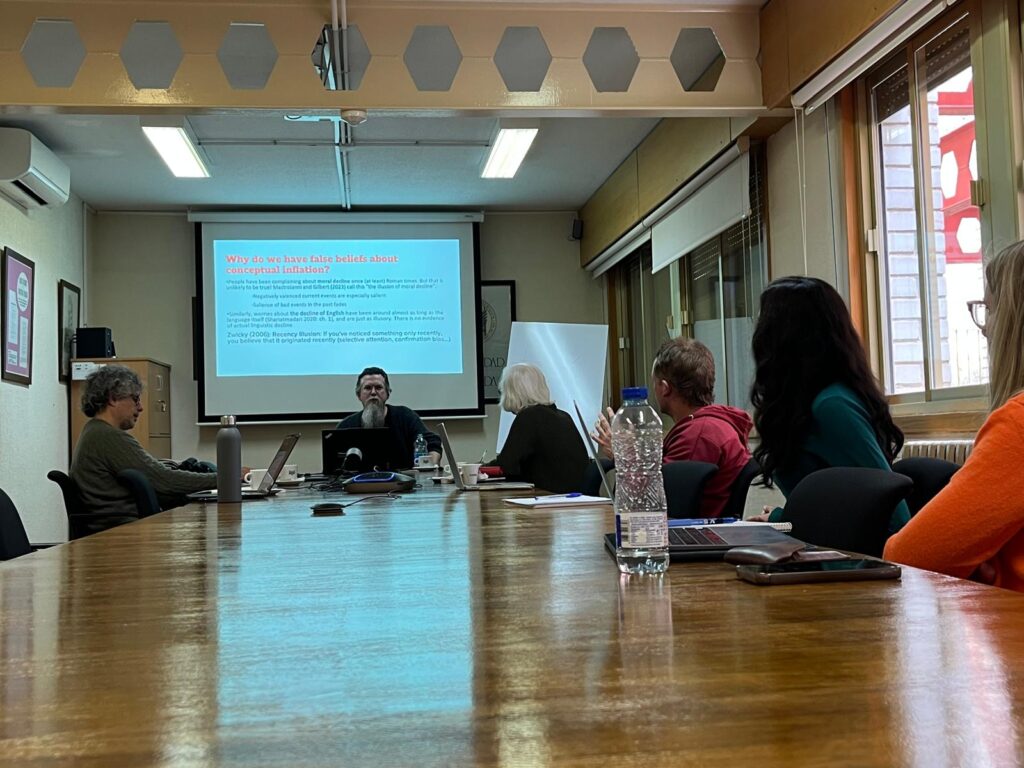El martes, 4 de marzo, a las 12.30, tendrá lugar una nueva sesión del seminario TeC-FiloLab. Nuestro invitado será Nat Hansen, de la Universidad de Reading (Reino Unido). A continuación tenéis el título y un resumen de la charla, así como una breve nota sobre la trayectoria de Nat.
Title: «Measuring Conceptual Inflation: The Case of ‘Racist'»
Abstract: Is the term ‘racist’ being applied so widely that it is losing its moral force? Theorists and pundits from across the political spectrum think that it is. They call such a change of meaning «conceptual inflation» and argue that we should try to stop it by restricting the use of ‘racist’ or replacing ‘racist’ with new expressions. But what evidence do we have that ‘racist’ is inflated? Economists do not track currency inflation with mere vibes; they use measurements such as the consumer price index. For example, using CPI, it is observable that there has been considerable US dollar inflation over the last three decades or so: $1.00 in 1989 has the purchasing power of $2.54 in 2024. If ‘racist’ has undergone a similar transformation, as critics of conceptual inflation contend, how could that be measured? Before plunging into the normative debate about whether conceptual inflation is good or bad, we should gather systematic empirical evidence about whether the purported conceptual inflation of ‘racist’ is in fact happening. That is what we do in this paper: we use an apparent time study, a technique drawn from sociolinguistics, to measure whether ‘racist’ is undergoing conceptual inflation. An apparent time study looks at the linguistic behavior of people of different ages as a way of measuring linguistic variation over time. We distinguish two processes that constitute conceptual inflation: extension expansion and intensity bleaching. Across three studies, we found some equivocal evidence that ‘racist’ has undergone extension expansion—its reference class may have slightly expanded—but no evidence that it has undergone intensity bleaching—its moral force remains the same. By comparing ‘racist’ with other terms that have plausibly undergone meaning change, like ‘queer’, we argue that claims about the conceptual inflation of ‘racist’, as they are standardly understood, are overblown.
Bio: I am associate professor of philosophy at the University of Reading. Before Reading I was a postdoc at the Institut Jean-Nicod in Paris and at Umeå University in Sweden. My primary research interest is in philosophy of language, with an emphasis on contextualism, experimental semantics and pragmatics, the legacy of ordinary language philosophy, the meaning of color terms, and aesthetic judgment. I’m writing a book on ordinary language philosophy and experimental philosophy of language.

